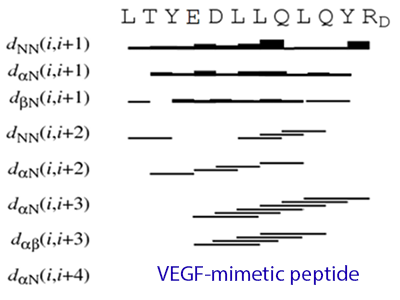|

The ability to control angiogenesis using chemical tools has important applications in various scientific fields. In the search for new proangiogenic molecules, researchers found that a sequence of amino acids in the IQGAP1 protein has similarities to a well-known proangiogenic peptide called the QK peptide. They analyzed a synthetic peptide derived from IQGAP1, Ac-LTYQDLLQLQY-{D-Arg}-NH2, and found it to have biological activity similar to that of VEGF, making it a potential tool for promoting reparative angiogenesis.
Developing molecules that can modulate the VEGF-dependent angiogenic response is crucial for treating diseases related to excessive or insufficient blood vessel formation. Various types of molecules, including antibodies, small organic molecules like tyrosine kinase inhibitors (TKIs), and peptide-like molecules, have been proposed to modulate angiogenesis.
Research on novel peptides for modulating the VEGF/VEGFR molecular system has been active in recent years: Ac-KLTWQELYQLKYKGI-NH2, Ac-LTYQDLLQLQY-{D-Arg}-NH2 and Ac-KQLLWIRSGDRPWYTS-NH2. Different approaches, such as screening protein sequences and structure-based design, have been employed to develop peptides that mimic VEGF/VEGFR binding epitopes.
The VEGF/VEGFR molecular system has been a focus of drug discovery, leading to the development of molecules that can interact with either partner, including antibodies, small organic molecules, and, more recently, peptides. The design and characterization of peptides mimicking the VEGF/VEGFR binding interface have deepened our understanding of the molecular recognition involved. It is expected that the design of more sophisticated peptides will lead to valuable drug candidates for biomedical applications in the near future.
|